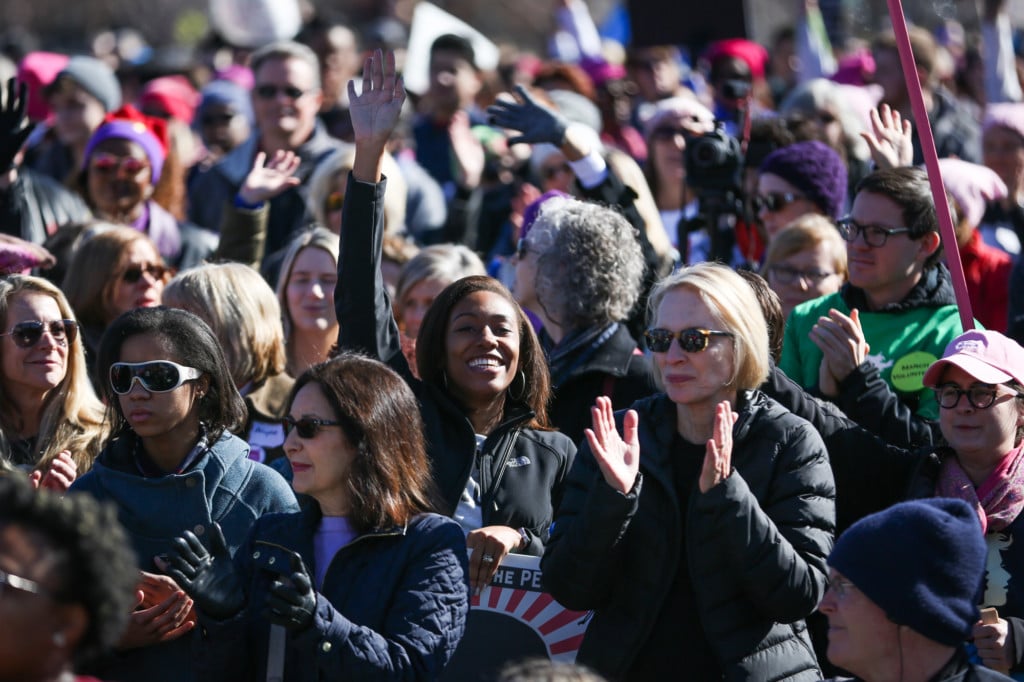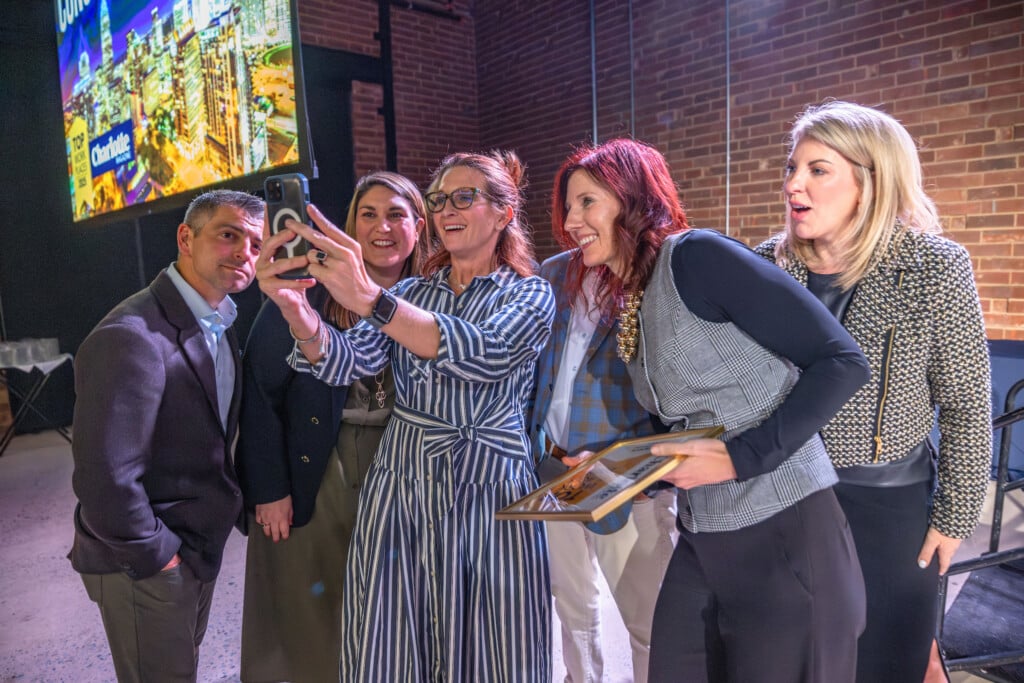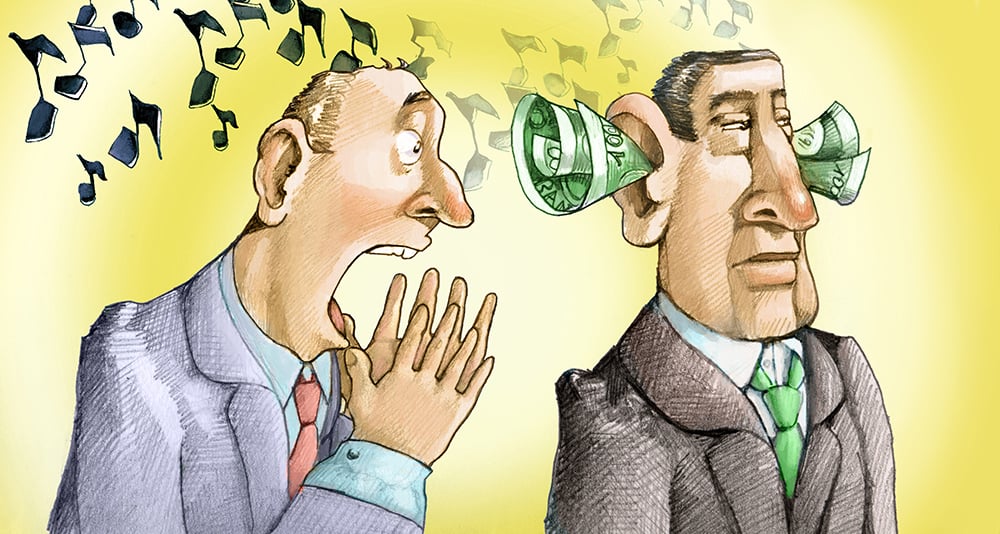Protesting For The Obvious
When things that should go without saying must be said

“Thousands of people should be here.”
On a Sunday in May, protesters filled the corner sidewalks of Central Avenue and The Plaza to demonstrate against Immigration and Customs Enforcement (ICE) arrests in Charlotte. They held signs defending due process; a banner, “Honk for Democracy,” inspired constant beeps from passing cars. The group opposed the policy that empowered masked, plain-clothed federal agents to arrest people for civil immigration violations in schools, courthouses, and churches, often without a judicial warrant—and, with increasing frequency, here in East Charlotte. Most ICE arrestees had no criminal convictions. The demonstration was heartening as a matter of scale: On one side, a federal policy, backed by the president and a $10 billion budget; on the other, about 50 protesters with homemade signs, supporting their neighbors.
I walked past them as I ran errands in Plaza Midwood. As I waited for a walk light, I chatted with one protester who was quieter than the rest. I thanked him for being there, and that’s when he said it: “Thousands of people should be here.” I gulped and thought of one person in particular.
I used to have unwavering faith in the power of protest. During my first big one, 2004’s March for Women’s Lives in D.C., I joined more than a million people who demanded wider access to reproductive health care, more comprehensive sex education, and greater availability of birth control. Counter-protesters shoved crucifixes in my face and condemned me to hell, but my voice rose above theirs. It was a heady day for a twentysomething sure of her place along the upward arc of moral progress. That day, I met my co-worker’s mom, a woman in her 70s who marched silently while holding a wire hanger and the sign, “Never again.” She seemed an anachronism, looking back while the rest of us demanded more, more, more. “Young women don’t understand,” she told me. “The government can take it all away.” And I wouldn’t understand, for a while.
After that, I lifted more signs: for same-sex marriage, for immigrants and refugees, for peace. More, more, more. I lifted signs until I saw one particular sign at the 2018 Women’s March uptown: “Science is real.” I took no issue with the message—science is, in fact, real—but I couldn’t believe we’d regressed to a time when things that should go without saying needed to be said. Worse, that they needed to be written on protest signs.
The nature of progressive protest shifted. Instead of fighting for more, it re-argued points settled long ago: by Roe, by the Due Process Clause, by Copernicus. Only in retrospect can I see that, years ago, I wasn’t marching up the moral arc of progress but approaching a peak. On its downward slide, it felt like defeat to fight fights already won, to scream the obvious. I began to doubt: Did those marches really help? Was my protest powerful or performative? It’s not that I gave up. I still volunteered and donated and voted. I chose writing assignments that pointed to issues and people I supported. I traded placards for a pen, hoping the written word would hold more sway.
Then the words of that man in Plaza Midwood hit me. Was my turn from protest really a shift in strategy? Or was it cover for passivity? Like any responsible writer, I turned to research.
The man was right: When thousands show up, things can change. The 3.5% rule, drawn from research of protests over the past century, states that civil resistance that includes 3.5% of a population has strong chances for success. Of the 20 largest nonviolent campaigns around the world, 14 were successful. Nice odds. As I write this in June, I find hope in the news: When Hungarian Prime Minister Viktor Orbán banned Budapest Pride, threatening to arrest or fine any who disobeyed, more than 100,000 people showed up anyway, waving to facial recognition cameras set up by police. It was the country’s largest-ever Pride, and political commenters called it a potential tipping point for the country. Could revolution be found at the end of a rainbow?
A month after the demonstration in Plaza Midwood, I joined more than 5,500 people in First Ward Park for the No Kings protest—one of 2,000 protests throughout the U.S. that day. Once again, I hoisted a “Make Empathy Great Again” sign. Chants and signs said what should go without saying—defenses of democracy, education, due process, and, yes, science—but I reclaimed my place among those who realized that it’s of utmost importance to say them. We don’t know which way that moral arc will bend next, but it felt good to rejoin the hands who gather to push it upward together.





